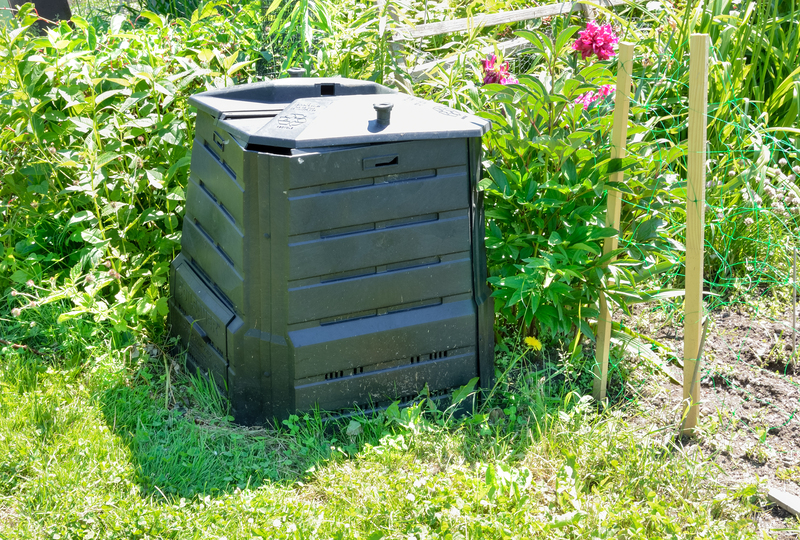
Discover Waste Categories Adaptable for Renewable Energy
In an era where sustainable solutions and renewable energy are at the forefront of global discussions, waste adaptation for energy production has become increasingly relevant. Waste, often deemed useless, plays a pivotal role in creating renewable energy. Let us explore the various waste categories that can be harnessed for renewable energy, thereby helping us transition towards a greener future.
Understanding Waste-to-Energy
Waste-to-energy (WtE) processes involve converting waste into usable energy, such as electricity or heat. This process not only reduces the volume of waste sent to landfills but also minimizes the carbon footprint by providing alternative energy sources. Understanding the types of waste adaptable for renewable energy is crucial for optimizing these processes.
Biomass Waste
Biomass waste includes organic materials from plants and animals. Common biomass wastes include agricultural residue, animal manure, and forestry by-products. Through processes like anaerobic digestion and biomass gasification, these materials can be decomposed to produce biogas or syngas, which are then used for generating electricity or even biofuels.
Municipal Solid Waste (MSW)
Municipal Solid Waste, commonly known as trash or garbage, comprises everyday items discarded by the public. It includes a wide range of materials, some of which can be converted into renewable energy. Key components include:
- Organic Waste: Food scraps and yard waste, when decomposed, can produce methane for energy.
- Paper and Cardboard: These are good candidates for burning in WtE plants to generate heat and electricity.
- Plastic Waste: Certain plastics can be chemically processed to produce fuel.
The transformation of MSW not only contributes to energy production but also significantly reduces landfill dependency.
Agricultural Waste
Agricultural waste includes leftover stalks, husks, and other residues from crop production. These materials are abundant in agricultural communities and strongly support biomass energy production. Key methods include:
- Composting: Breaks down organic waste to produce methane gas.
- Combustion: Directly burns agricultural waste to produce energy.
By utilizing agricultural waste, farmers can reduce field burning, which often contributes to air pollution, and gain an additional source of income through energy generation.
Industrial Waste
Industries produce a variety of wastes, some of which are potent sources of energy.
- Textile Waste: Can be converted into fuel through pyrolysis.
- Sawdust and Wood Shavings: Serve as excellent biomass materials.
- Sludge Waste: Often found in wastewater treatment plants, can be utilized in biogas production.
Adapting industrial waste for energy not only aids industries in minimizing waste disposal costs but also enhances their sustainability footprint.
Construction and Demolition Waste
Often overlooked, construction and demolition (C&D) debris are key sources of renewable energy. This category primarily consists of:
- Wood: Can be combusted for heat and power.
- Metals: While primarily recycled, they are also utilized in plasma arc gasification processes.
- Concrete and Bricks: Though not energy sources directly, innovative processes are under development to harness their potential.
By recycling and repurposing C&D waste, the construction industry can significantly cut down on landfill use and promote resource efficiency.
The Role of Technology in Waste Adaptation
Advanced technologies spearhead the effective adaptation of waste into renewable energy. Techniques such as gasification, pyrolysis, and anaerobic digestion are being constantly improved to increase efficiency and output. Technology not only improves the energy yield from waste but also ensures that emissions are minimized, aligning with environmental regulations.
Challenges in Waste-to-Energy Conversion
Despite the promising potential of converting waste into renewable energy, there are significant challenges that need addressing:
- Segregation and Collection: Efficient systems need to be put in place for effective waste sorting at the source.
- Technological Innovation: Continuous investment is required into research for better and more efficient conversion technologies.
- Regulatory Hurdles: Stringent policies and regulations often delay the adoption of WtE technologies in some regions.
Environmental and Economic Benefits
Besides reducing landfill dependency, waste-to-energy systems provide significant environmental benefits. They offer a solution to the growing waste problem while simultaneously reducing the dependency on fossil fuels. Economically, these systems provide energy security and create jobs in the renewable energy sector.
Future Prospects of Waste for Renewable Energy
The future of waste adaptation in renewable energy is undeniably optimistic. With continuous technological advancements and increased awareness, waste could soon become a primary resource for clean energy. Governments and private sectors are beginning to recognize the potential of waste-to-energy projects, paving the way for investments and collaborations that will transform waste management on a global scale.
Conclusion
Exploring waste categories suitable for renewable energy not only offers a new frontier in energy production but also addresses the pressing challenge of waste management. By leveraging diverse waste materials and advanced technologies, societies can drive the transition to sustainable energy solutions while mitigating environmental degradation. As we advance, our understanding and implementation of waste-to-energy systems will play a crucial role in securing a sustainable future for upcoming generations.
